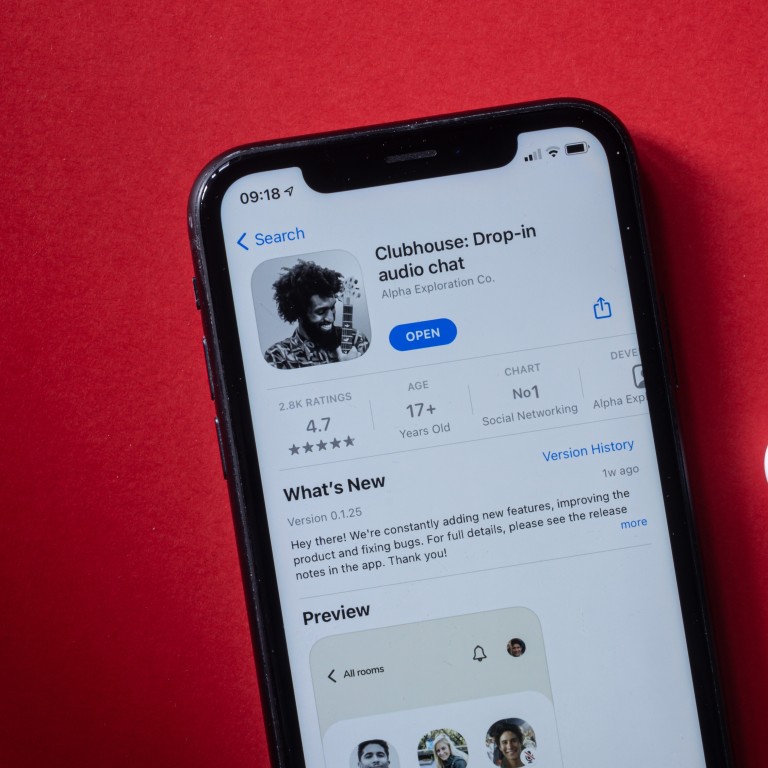
Clubhouse clone Duihuaba removed from app stores two weeks after launch, raising questions about audio chat platforms’ viability in China
- Inke said it removed its Clubhouse clone Duihuaba from app stores because the app is incomplete
- Experts are sceptical about whether social audio apps can flourish in China given the country’s strict internet content regulations
Duihuaba first went viral just days after Clubhouse, an audio-only chat app that has become the hottest new social media platform in Silicon Valley, was blocked in China on February 9. Now users can no longer turn to Inke’s alternative, which was removed from Apple’s App Store and multiple Android stores on Monday night.
Inke’s setback reflects the complex landscape that Chinese tech companies have to navigate, as they try to grow amid the government’s increasingly tight grip on online speech and internet content.
Chinese podcast app founder says Clubhouse model works better overseas
“We have come to realise that Duihuaba needs to be further completed in terms of both technology and the form of the product,” an Inke spokeswoman said on Tuesday.
Duihuaba appears to have copied all the functions of the more popular San Francisco-based Clubhouse, including a nearly identical-looking user interface. Although many Chinese companies are now scrambling to create a home-grown version of Clubhouse to try to keep up with “the next big thing”, many experts remain sceptical about whether social audio apps can catch on in a country with harsh restrictions on online speech.
The developers told Chinese tech media outlet 36kr that they put the app together in just four days. They first thought of creating a Clubhouse clone on February 3, and it was available in all major app stores a week later. The company said it had 4,000 registered users and 1,000 active users by February 20.
Audio social apps boom in China on the back of Clubhouse’s rising profile
The popularity of Duihuaba reached a new height last Saturday when Allen Zhu Xiaohu of GSR Ventures, famous for his early backings of Didi and Ele.me, joined a panel discussion with tech billionaire Zhou Yahui on the platform. The event helped Duihuaba become one of the most talked-about alternatives to Clubhouse in China.
Clubhouse’s rise in China also came and went in a matter of days. While it was initially launched in March of last year, it received little attention in China until Tesla and SpaceX CEO Elon Musk joined and promoted the app on Twitter on January 31.

